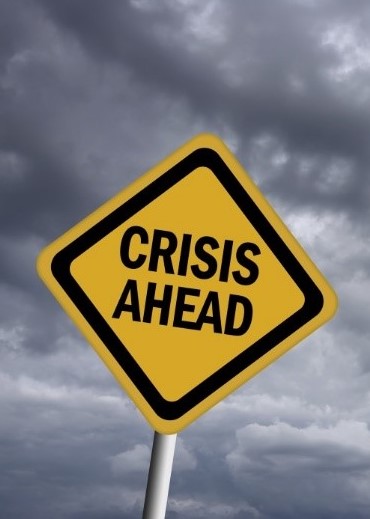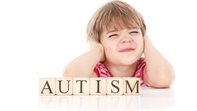|
Kategorie
|
-
-
-
 Psychologon / Rešerše
Bedtime social media use may be harming UK teenagers, study says
"More than a third of teenagers spent at least three hours a day on social media, with a fifth devoting at least five hours to the activity, researchers found. Those who were on social media for three hours or more daily were most likely to get to sleep late.
Going to sleep late on school nights was a particular concern, researchers said, because it put teenagers at risk of “poorer academic and emotional outcomes”. Insufficient sleep in adolescence has been linked to a range of mental health problems, obesity and poor performance at school." Psychologon / Rešerše
Bedtime social media use may be harming UK teenagers, study says
"More than a third of teenagers spent at least three hours a day on social media, with a fifth devoting at least five hours to the activity, researchers found. Those who were on social media for three hours or more daily were most likely to get to sleep late.
Going to sleep late on school nights was a particular concern, researchers said, because it put teenagers at risk of “poorer academic and emotional outcomes”. Insufficient sleep in adolescence has been linked to a range of mental health problems, obesity and poor performance at school."
www.theguardian.com / 2. 3. 2019
-
-
-
 Psychologon / Rešerše
How your belly could heal your brain
"Existing antidepressants aim to alter the balance of chemicals such as serotonin in the brain, but they are not effective for all patients: only two out of every 10 patients taking antidepressant drugs show signs of improvement, over and above the placebo effect. And although they help many patients, talking therapies such as cognitive behavioural therapy are similarly hit and miss. As a result, many patients are left without and struggle to find an appropriate treatment, and the gut-brain axis would seem to offer one of the most promising lines of enquiry." Psychologon / Rešerše
How your belly could heal your brain
"Existing antidepressants aim to alter the balance of chemicals such as serotonin in the brain, but they are not effective for all patients: only two out of every 10 patients taking antidepressant drugs show signs of improvement, over and above the placebo effect. And although they help many patients, talking therapies such as cognitive behavioural therapy are similarly hit and miss. As a result, many patients are left without and struggle to find an appropriate treatment, and the gut-brain axis would seem to offer one of the most promising lines of enquiry."
BBC / 28. 2. 2019
-
-
-
 Psychologon / Psychologon
Krize první čtvrtiny života
Většina z nás už někdy slyšela o krizi středního věku. V současnosti se ale v moderních společnostech objevuje nový fenomén, který je také popisován jako krize a postihuje zejména mladé lidi. Výskyt podobných problémů stoupá a jejich příčiny jsou někdy různorodé, ale vývoj a důsledky jsou si podobné. Co tedy v současnosti trápí mladé lidi a proč vznikl nový pojem čtvrtživotní krize? Psychologon / Psychologon
Krize první čtvrtiny života
Většina z nás už někdy slyšela o krizi středního věku. V současnosti se ale v moderních společnostech objevuje nový fenomén, který je také popisován jako krize a postihuje zejména mladé lidi. Výskyt podobných problémů stoupá a jejich příčiny jsou někdy různorodé, ale vývoj a důsledky jsou si podobné. Co tedy v současnosti trápí mladé lidi a proč vznikl nový pojem čtvrtživotní krize?
Štěpánka Michalíčková / 26. 2. 2019
-
-
-
 Psychologon / Rešerše
Oxytocin, the so-called “hug hormone,” is way more sophisticated than we thought
"The myth of oxytocin as the “hug hormone” isn’t dead. You can still read new articles — especially around Valentine’s Day — on the internet about how being given chocolates or flowers boosts oxytocin, or how couples who work on art projects together can boost it as well (and presumably inject more empathy into their relationship). The real story of oxytocin research reminds us — as many science stories do — that the truth is often more nuanced, and more wonderfully complicated, than it first appears."
Read more in this article.
More about oxytocin in our article from Kateřina Skalická. Psychologon / Rešerše
Oxytocin, the so-called “hug hormone,” is way more sophisticated than we thought
"The myth of oxytocin as the “hug hormone” isn’t dead. You can still read new articles — especially around Valentine’s Day — on the internet about how being given chocolates or flowers boosts oxytocin, or how couples who work on art projects together can boost it as well (and presumably inject more empathy into their relationship). The real story of oxytocin research reminds us — as many science stories do — that the truth is often more nuanced, and more wonderfully complicated, than it first appears."
Read more in this article.
More about oxytocin in our article from Kateřina Skalická.
www.vox.com / 14. 2. 2019
-
-
-
 Psychologon / Rešerše
Why some people are more altruistic than others
"Why do some people do selfless things, helping other people even at risk to their own well-being? Psychology researcher Abigail Marsh studies the motivations of people who do extremely altruistic acts, like donating a kidney to a complete stranger. Are their brains just different?"
Více zde. Psychologon / Rešerše
Why some people are more altruistic than others
"Why do some people do selfless things, helping other people even at risk to their own well-being? Psychology researcher Abigail Marsh studies the motivations of people who do extremely altruistic acts, like donating a kidney to a complete stranger. Are their brains just different?"
Více zde.
www.ted.com / 4. 2. 2019
-
-
-
 Psychologon / Psychologon
Experience with autistic children from specialised kindergarten
For 6 months I volunteered in a kindergarten for autistic children and in this article, I will present my experiences and two case studies, focusing on sensory alterations connected to Autism Spectrum Disorder. Psychologon / Psychologon
Experience with autistic children from specialised kindergarten
For 6 months I volunteered in a kindergarten for autistic children and in this article, I will present my experiences and two case studies, focusing on sensory alterations connected to Autism Spectrum Disorder.
Soňa Navračičová / 27. 1. 2019
-
-
-
 Psychologon / Rešerše
Do you really know why you do what you do?
"Experimental psychologist Petter Johansson researches choice blindness -- a phenomenon where we convince ourselves that we're getting what we want, even when we're not. In an eye-opening talk, he shares experiments (designed in collaboration with magicians!) that aim to answer the question: Why do we do what we do? The findings have big implications for the nature of self-knowledge and how we react in the face of manipulation. You may not know yourself as well as you think you do." Psychologon / Rešerše
Do you really know why you do what you do?
"Experimental psychologist Petter Johansson researches choice blindness -- a phenomenon where we convince ourselves that we're getting what we want, even when we're not. In an eye-opening talk, he shares experiments (designed in collaboration with magicians!) that aim to answer the question: Why do we do what we do? The findings have big implications for the nature of self-knowledge and how we react in the face of manipulation. You may not know yourself as well as you think you do."
www.ted.com / 20. 1. 2019
-
-
-
 Psychologon / Uncategorised
Most people are bad at arguing. These 2 techniques will make you better.
"Anyone who has argued with an opinionated relative or friend about immigration or gun control knows it is often impossible to sway someone with strong views. That’s in part because our brains work hard to ensure the integrity of our worldview: We seek out information to confirm what we already know, and are dismissive or avoidant of facts that are hostile to our core beliefs. But it’s not impossible to make your argument stick. And there’s been some good scientific work on this. Here are two strategies that, based on the evidence, seem promising."
Read more in this article. Psychologon / Uncategorised
Most people are bad at arguing. These 2 techniques will make you better.
"Anyone who has argued with an opinionated relative or friend about immigration or gun control knows it is often impossible to sway someone with strong views. That’s in part because our brains work hard to ensure the integrity of our worldview: We seek out information to confirm what we already know, and are dismissive or avoidant of facts that are hostile to our core beliefs. But it’s not impossible to make your argument stick. And there’s been some good scientific work on this. Here are two strategies that, based on the evidence, seem promising."
Read more in this article.
www.vox.com / 11. 1. 2019
-
-
-
 Psychologon / Rešerše
Virtual reality therapy shows promise in the treatment of nightmares
"A specialized virtual reality treatment may be able to reduce the frequency and intensity of nightmares, according to a pilot study published in the journal Dreaming. “Current treatments for nightmares required too much time or taking a drug that essentially knocked you out for awhile, so we needed a treatment that was short, non-toxic and effective,” said study author Patrick McNamara of the Boston University School of Medicine." Psychologon / Rešerše
Virtual reality therapy shows promise in the treatment of nightmares
"A specialized virtual reality treatment may be able to reduce the frequency and intensity of nightmares, according to a pilot study published in the journal Dreaming. “Current treatments for nightmares required too much time or taking a drug that essentially knocked you out for awhile, so we needed a treatment that was short, non-toxic and effective,” said study author Patrick McNamara of the Boston University School of Medicine."
PsyPost / 8. 1. 2019
-
-
-
 Psychologon / Rešerše
Aditi Shankardass: A second opinion on developmental disorders
Developmental disorders in children are typically diagnosed by observing behavior, but Aditi Shankardass suggests we should be looking directly at brains. She explains how one EEG technique has revealed mistaken diagnoses and transformed children's lives. Psychologon / Rešerše
Aditi Shankardass: A second opinion on developmental disorders
Developmental disorders in children are typically diagnosed by observing behavior, but Aditi Shankardass suggests we should be looking directly at brains. She explains how one EEG technique has revealed mistaken diagnoses and transformed children's lives.
www.ted.com / 4. 1. 2019
-
-
-
 Psychologon / Rešerše
Legendární irská léčivá půda funguje proti rezistentním superbakteriím
V severoirském kraji Boho mají kouzelnou hlínu, která léčí všechny rány a infekce. A jak zjistili mikrobiologové, tohle kouzlo skutečně funguje. V irské hlíně žijí doposud neznámé strepomycety které produkují velmi účinné antibakteriální látky. Psychologon / Rešerše
Legendární irská léčivá půda funguje proti rezistentním superbakteriím
V severoirském kraji Boho mají kouzelnou hlínu, která léčí všechny rány a infekce. A jak zjistili mikrobiologové, tohle kouzlo skutečně funguje. V irské hlíně žijí doposud neznámé strepomycety které produkují velmi účinné antibakteriální látky.
www.osel.cz / 30. 12. 2018
-
-
-
 Psychologon / Rešerše
Martin Pistorius How my mind came back to life — and no one knew
Imagine being unable to say, "I am hungry," "I am in pain," "thank you," or "I love you,” — losing your ability to communicate, being trapped inside your body, surrounded by people yet utterly alone. For 13 long years, that was Martin Pistorius’s reality. After contracting a brain infection at the age of twelve, Pistorius lost his ability to control his movements and to speak, and eventually he failed every test for mental awareness. He had become a ghost. But then a strange thing started to happen — his mind began to knit itself back together. In this moving talk, Pistorius tells how he freed himself from a life locked inside his own body. Psychologon / Rešerše
Martin Pistorius How my mind came back to life — and no one knew
Imagine being unable to say, "I am hungry," "I am in pain," "thank you," or "I love you,” — losing your ability to communicate, being trapped inside your body, surrounded by people yet utterly alone. For 13 long years, that was Martin Pistorius’s reality. After contracting a brain infection at the age of twelve, Pistorius lost his ability to control his movements and to speak, and eventually he failed every test for mental awareness. He had become a ghost. But then a strange thing started to happen — his mind began to knit itself back together. In this moving talk, Pistorius tells how he freed himself from a life locked inside his own body.
www.ted.com / 29. 12. 2018
|
|